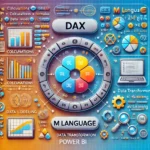Selecting the right development environment is a crucial decision for Python developers. Two common choices are PyCharm vs. Python IDLE. In this article, we’ll provide a comprehensive comparison to help you make an informed decision for your Python development needs.
PyCharm: The Python Powerhouse
PyCharm is a powerful Integrated Development Environment (IDE) created by JetBrains, specifically designed for Python. It offers a wide array of features tailored for Python developers:
- Python-Centric: PyCharm provides deep integration with Python, making it easy to create, debug, and deploy Python applications.
- Smart Code Assistance: With intelligent code completion, code analysis, and error highlighting, PyCharm helps you write clean and efficient Python code.
- Rich Ecosystem: PyCharm supports popular Python frameworks like Django, Flask, and more, simplifying web and data science projects.
- Robust Debugging: Debugging in PyCharm is seamless, with support for breakpoints, a built-in visual debugger, and remote development capabilities.
- Vast Plugin Ecosystem: Extend PyCharm’s functionality with numerous plugins, enhancing its adaptability to various project requirements.
https://synapsefabric.com/2023/09/30/pycharm-vs-visual-studio-code-a-comprehensive-ide-comparison/
Python IDLE: The Minimalist Python Environment
Python IDLE, short for “Integrated Development and Learning Environment,” comes bundled with the standard Python distribution. It’s a straightforward and lightweight development environment with a focus on simplicity:
- Basic Code Editing: Python IDLE provides essential code editing features like syntax highlighting, simple debugging, and basic code execution.
- Built-In Shell: It includes an interactive Python shell, allowing you to test code snippets and execute Python scripts on the fly.
- Ease of Use: Python IDLE is user-friendly and suitable for beginners or those looking for a no-frills development experience.
Comparison Table
Let’s compare PyCharm and Python IDLE across key dimensions:
| Feature | PyCharm | Python IDLE |
|---|---|---|
| Python Integration | Deep Python integration | Basic Python support |
| Code Assistance | Intelligent code completion | Basic code editing features |
| Framework Support | Extensive framework support | Limited framework support |
| Debugging | Robust debugging capabilities | Basic debugging |
| Plugin Ecosystem | Vast plugin ecosystem | Limited extensibility |
| Learning Curve | Moderate | Low |
| Integrated Terminal | Yes | No |
| Python Shell | Limited shell functionality | Built-in interactive shell |
| Cost | Free (Community Edition) | Free (Bundled with Python) |
External Links
FAQs
1. Is PyCharm free?
- Yes, there is a free version of PyCharm known as the “Community Edition.” JetBrains also offers a paid “Professional Edition” with additional features.
2. Can I use Python IDLE for professional development?
- While Python IDLE is a simple and lightweight environment, it may not be suitable for complex or large-scale professional projects. PyCharm offers more advanced tools and features for professional development.
3. Which IDE is better for beginners?
- Python IDLE’s simplicity and ease of use make it a good choice for beginners. PyCharm, while more powerful, has a steeper learning curve.
4. Does PyCharm support Python 2 and 3?
- Yes, PyCharm supports both Python 2 and Python 3, allowing you to work with either version of the language.
5. Can I extend Python IDLE with plugins?
- Python IDLE’s extensibility is limited compared to PyCharm, which has a vast plugin ecosystem.
Choosing between PyCharm and Python IDLE depends on your development goals and preferences. If you’re a professional developer working on complex projects, PyCharm’s advanced features and extensive plugin support make it a solid choice. On the other hand, if you prefer simplicity and are just getting started with Python, Python IDLE provides a straightforward environment for learning and basic coding tasks.
Consider your specific needs and the complexity of your projects when making your decision. Both tools have their merits and can be valuable additions to a Python developer’s toolkit.






